UTokyo holds virtual 3MT competition Grand prize goes to Diane Valenzuela Gubatanga in Graduate School of Frontier Sciences
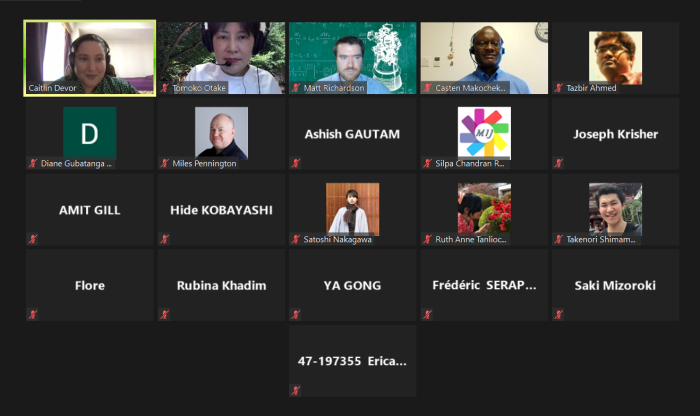
Date of activity: July 17, 2021
What do solar panels in rice paddies, the Japanese media’s coverage of feminist movements and robots’ interaction with the elderly have in common? They are all part of research that Ph.D. students at the University of Tokyo are undertaking. Seventeen of them rose to the challenge of explaining their theses in three minutes as UTokyo hosted its online Three Minute Thesis (3MT) competition, culminating in the contest’s awards ceremony on July 17, 2021.
The 3MT competition is a research communication contest, where Ph.D. students explain their research in three minutes, using only one slide, to a nonexpert audience. The 17 prescreened UTokyo students, representing a wide range of disciplines, had submitted videos of their three-minute presentations beforehand. On July 17, three judges met via a Zoom videoconference to discuss them, then three winners were announced in the awards ceremony attended by the contestants, also via Zoom.
This year’s grand prize went to Diane Valenzuela Gubatanga at the Graduate School of Frontier Sciences, who spoke about her research on turning used cooking oil into hydrogen fuel. She won 300,000 yen in research funds, which will be given to her lab. As the winner of the UTokyo 3MT, she also won the right to participate in the 2021 Asia-Pacific 3MT Competition, to be held also virtually by the University of Queensland in Brisbane, Australia, in October 2021.
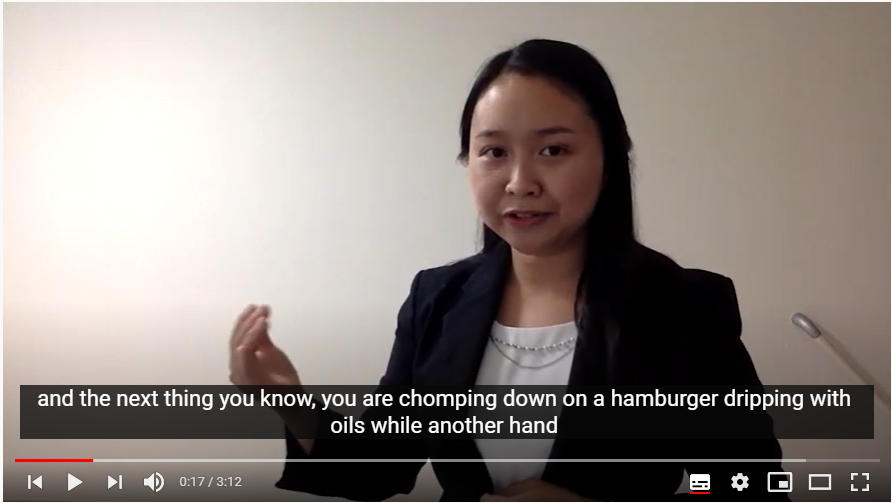
Yumeng Pang, a doctoral student at the Graduate School of Agricultural and Life Sciences, won the runner-up award for her presentation titled “Changing oceans, flexible squids.” She won 200,000 yen.
Ahmed Tazbir from the Graduate School of Medicine won the People’s Choice Award. The award is given to a contestant who collects the most votes out of ballots cast by students, faculty and staff of UTokyo who have watched the playlist of 17 video presentations uploaded on the official YouTube channel of the university. For this year’s award, Tazbir got 67 out of the 222 votes cast. He won 100,000 yen.
The judging panel consisted of Professor Marie Oshima at UTokyo’s Institute of Industrial Science, Casten Makochekanwa, counselor at the Australian Embassy in Tokyo, and Matt Richardson, project assistant professor from UTokyo’s Graduate School of Engineering.
They assessed the competitors according to the virtual 3MT competition guidelines made public by the University of Queensland. The judging criteria included such points as whether the presentation covered the background and significance of the research while explaining terminology and avoiding jargon, and whether it clearly described the impact and/or results of the research.
Makochekanwa said after the event that he was impressed with all the presenters and it was tough to choose the winners.
“I'm a scientist myself, and I did my master’s and Ph.D. in Japan, so I understand how much energy goes into trying to summarize your Ph.D. thesis into three minutes,” he said. “And overall, I thought the quality of the presentations was really high. All these students, I think they did a great job. I felt like I've been educated across a whole spectrum of research trends.”
Richardson also congratulated all of the 17 contestants, saying the quality of their presentations was very high. In 2019, Richardson, back then a Ph.D. student himself, competed in the inaugural UTokyo 3MT. He added that, while some students might hesitate to present their thesis online, the virtual format will likely stay in the post-pandemic age and that students need to get used to the “hybrid” communication style.
“I think you'll still find that there will be a lot of hybrid events and a lot of conferences that take place virtually,” Richardson said. “That’s this whole ‘new normal’ thing. So it might feel uncomfortable, because it's not what we're used to, but I think it's going to be the way things are done from now on. I think it's incumbent upon all of us to prepare and adapt to this sort of situation. And the more you do it, the easier it gets.”
3MT gives participants an opportunity to polish presentation and communication skills on their research. The University of Queensland held the first 3MT in 2008. It is now held in over 900 universities across more than 85 countries worldwide.
Comments from the winners
Diane Valenzuela Gubatanga (Grand Prize)
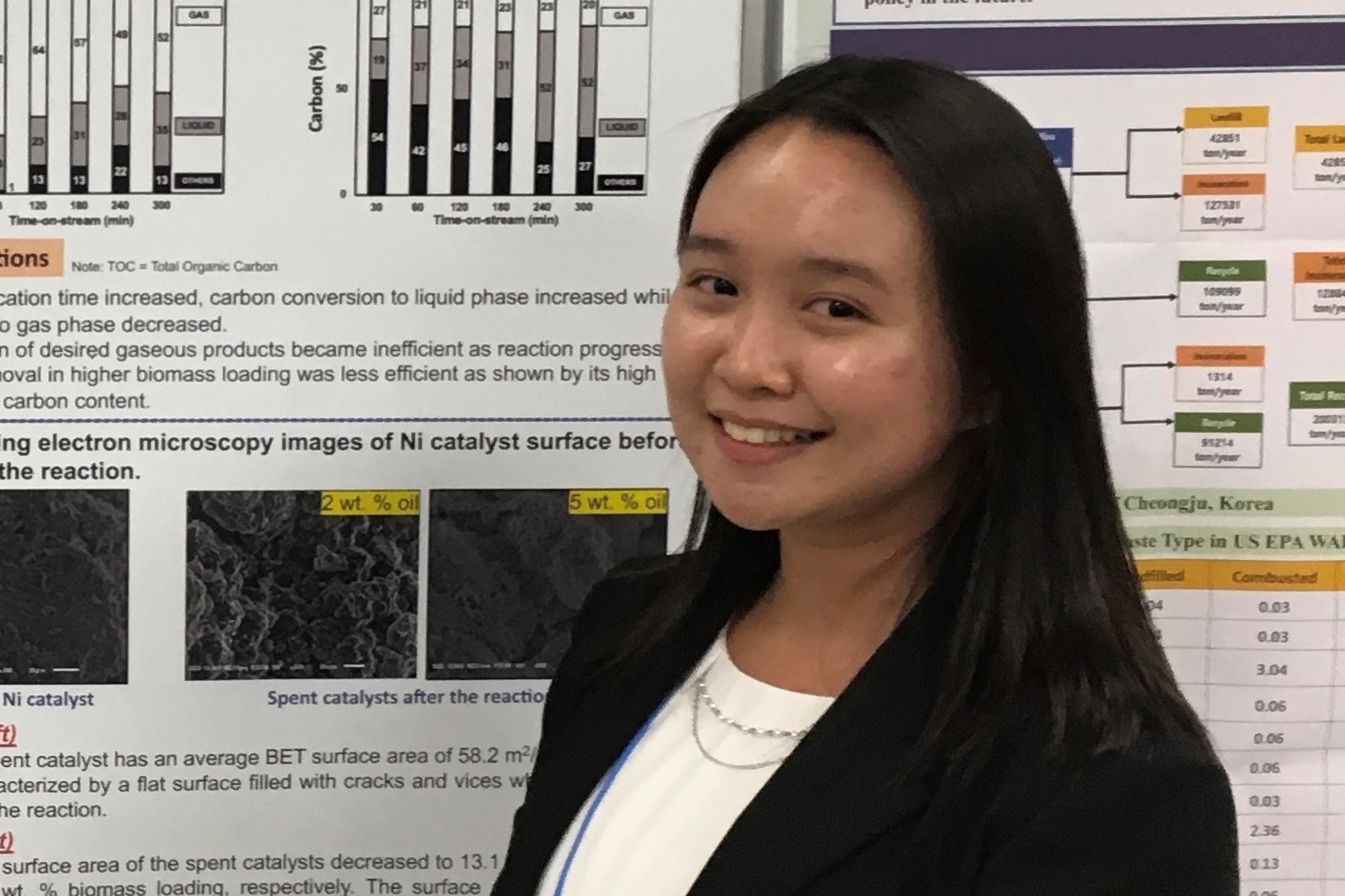
The 3MT competition has been a great platform for me to communicate my research to a wider group of audience. Moreover, this experience made me realize that what I am trying to solve is actually just a small part of a bigger problem. But no matter how small this is, I know somebody out there might find this information useful one day. About the Asia-Pacific 3MT, the honor is mine to represent UTokyo in the international arena. I know I got everyone’s support and this is enough motivation for me to do my best.
Yumeng Pang (Runner-up Award)
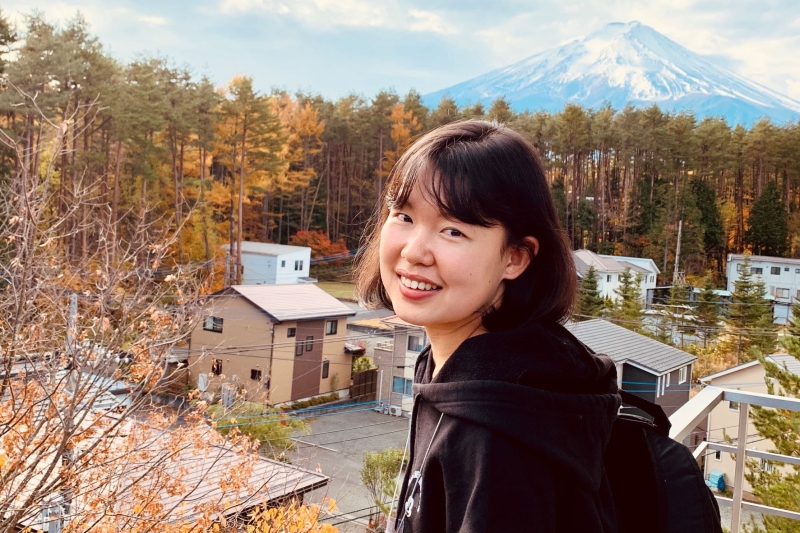
I am very honored to take the Runner-up Award in the 3MT competition. It is a fantastic chance for me to think about how to communicate my research with the general public, in an interesting and appealing way. I am grateful that I received plenty of great advice and generous help on my speech and performance, also learned a lot from all candidates’ speeches. In the future, I want to explore myself more in the field of science communication, to bridge the gap between science in school class and beauty in daily life.
Ahmed Tazbir (People’s Choice Award)
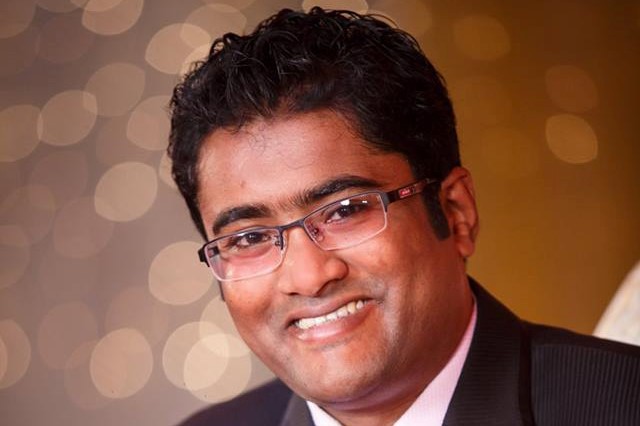
I also applied last year, but at that time my application got rejected (during the screening process and I couldn't participate in the event). So this year I tried to rectify my problems by identifying difficult words and trying to make them easier for people to understand. I watched videos of past participants, which were really helpful. My professor Makoto Aihara also supported me a lot. I heard that some professors might not have much interest in research communication. So in the future (it would be nice) if more professors or supervisors can also help their students to come forward and participate in big numbers.
UTokyo 3MT 2021 contestants and their presentations






